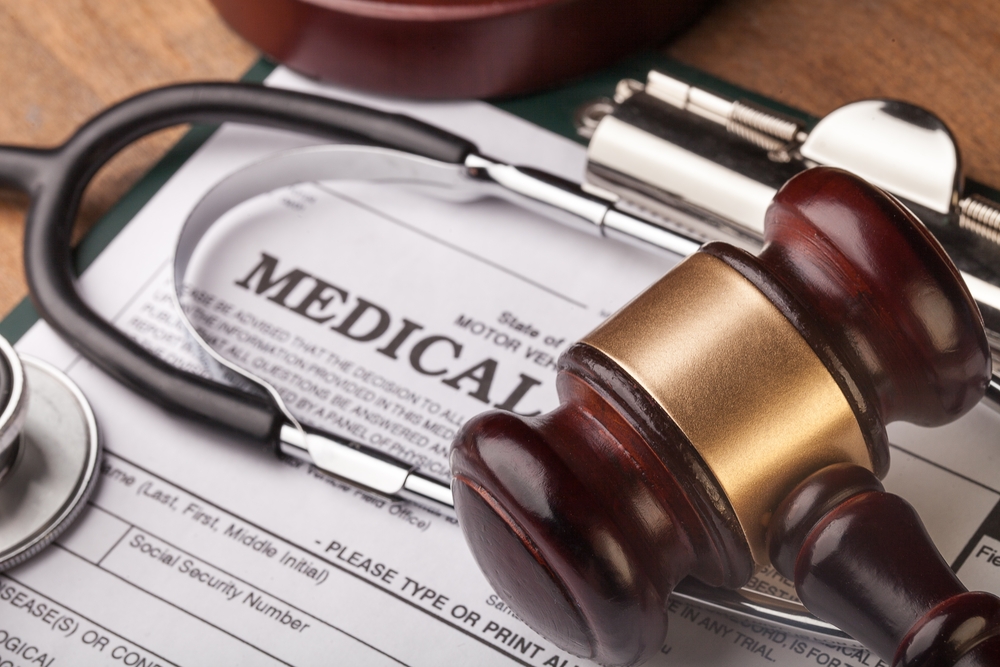 When your health requires professional attention, you generally trust in your doctor to provide you with the care that you need. However, doctors are not infallible, and misdiagnoses do occur, and far more often than you might realize between 10% and 20% of all patients in the United States are misdiagnosed at some point in their lifetimes, and as many as 28% of these misdiagnoses can result in life-threatening or irreversible injuries. So, what should you do if you suspect your doctor has misdiagnosed you? Here are a few steps to follow.
When your health requires professional attention, you generally trust in your doctor to provide you with the care that you need. However, doctors are not infallible, and misdiagnoses do occur, and far more often than you might realize between 10% and 20% of all patients in the United States are misdiagnosed at some point in their lifetimes, and as many as 28% of these misdiagnoses can result in life-threatening or irreversible injuries. So, what should you do if you suspect your doctor has misdiagnosed you? Here are a few steps to follow.
Keep a Detailed Record of Your Symptoms
Ultimately, you are your own best advocate for your healthcare, so it’s important that you put in the work to ensure that you receive the care that you need. Write down everything you can remember about your earlier symptoms before your diagnosis, when your doctor diagnosed you, the treatment prescribed, and how your symptoms have changed since them (if at all). Then, continue to keep a detailed journal of your symptoms on a daily basis. Be as thorough as you possibly can, including notes regarding your appetite, how fatigued you feel, any changes to your smell or taste, unusual aches or pains, changes to your bowel movements, and so on.
Many misdiagnoses occur because a patient does not reveal all of their symptoms to the doctor. This may occur because the patient is embarrassed about discussing certain symptoms, or simply because they don’t believe the symptom to be relevant to the situation. However, if you think you’ve already been misdiagnosed, it’s essential that you cover all of your symptoms, no matter how small, to ensure the issue gets addressed properly.
You should also make note of anything that improves or worsens your symptoms. For example, does your nausea subside when you lie down? Include details regarding the severity of your symptoms as well, so you can track whether they’re improving or worsening over time, if they get worse throughout the course of each day, and so on. Additionally, if you have visible symptoms (skin growths, swelling, rashes, dramatic weight gain or loss, etc.) take photos daily to track how those change.
Make Another Appointment with Your Doctor
Many people will rush to finding another doctor when they suspect they’ve been misdiagnosed, and in some cases, this may be the correct course of action. However, if this is a doctor you generally trust and have a good relationship with, it’s probably worth making a follow-up appointment. Share your symptom journal and any photos you’ve taken with your doctor, and make sure that you’re completely open and honest about all of your symptoms. This may include talking about some uncomfortable topics, but this could be the key to properly diagnosing your issue.
Once you’ve shared your records in detail, your doctor should be willing to reexamine your situation and determine any additional options available to you. However, if they’re dismissive of your concerns or unwavering in their initial diagnosis, it may be worth proceeding to the next step.
Find a Different Doctor for a Second Opinion
If you’re still confident you’ve been misdiagnosed, but your doctor isn’t willing to reexamine your diagnosis, it’s time for a second opinion. Take those records you’ve been keeping and find another doctor. Book your appointment, and be honest about your concerns when you meet with your new doctor. They will likely be aware of your initial diagnosis, so be sure to talk to them about the exact reasons why you think that diagnosis is incorrect. Ask about additional diagnostic testing that might be available to delve deeper into your condition and find another possible cause for your symptoms.
What If Your Misdiagnosis Has Injured You?
As we stated at the beginning of this blog, misdiagnosis can cause serious and irreversible injuries. Taking the wrong medications, delaying proper treatment, and other actions (or inactions) related to your misdiagnosis can have devastating consequences. If you’ve been misdiagnosed and suffered an injury as a direct result of that misdiagnosis, you should speak to a personal injury attorney that specializes in medical malpractices.
At The Harr Law Firm, we can provide you with the guidance and support you need to navigate a personal injury lawsuit for your misdiagnosis. We’ll help you understand the types of compensation you may qualify for, including reimbursement for medical treatment, loss of income, loss of enjoyment, personal pain and suffering, and more. Call now to schedule a consultation.